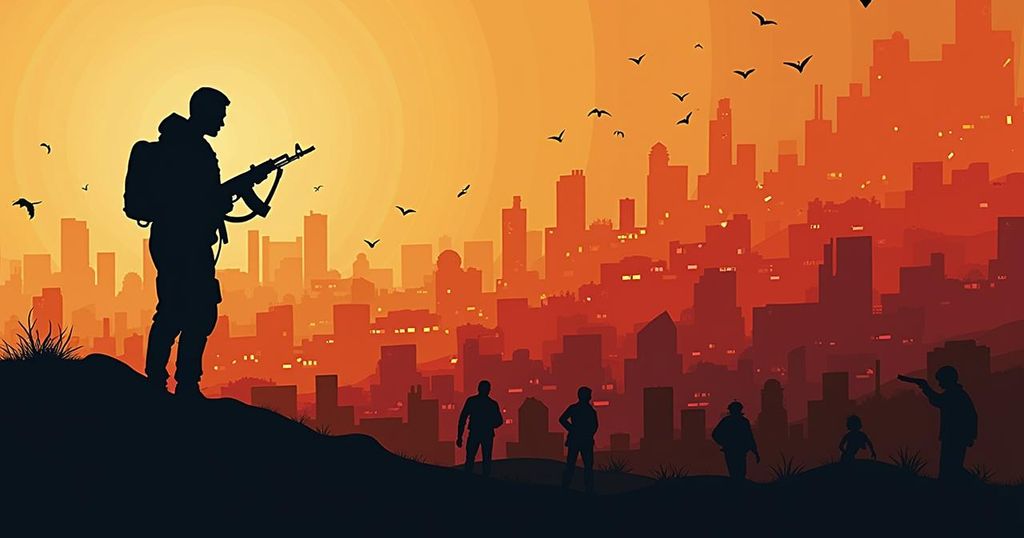Israel is currently in a conflict with Hezbollah along the Lebanon border, marking the possibility of a Third Lebanon War. The dynamics of this situation reflect Israel’s attempts to address long-standing threats from Hezbollah, highlighted by significant military actions, including the assassination of its leader, Hassan Nasrallah. Historical tensions combined with public support for military engagement in Israel raise concerns about the broader implications of this conflict and its potential impact on regional stability.
Israel is currently engaged in a conflict with Hezbollah along the Israel-Lebanon border, which has led to renewed discussions about the potential for a Third Lebanon War. The situation remains volatile as the extent of military involvement by both sides, the duration of the conflict, and potential civilian casualties are still uncertain. The Israeli government appears focused on delivering a significant blow to Hezbollah, a group that has been a persistent threat for decades. Over the past year, Hezbollah has conducted near-daily missile strikes on Israel, prompting military responses from the Israeli forces. In recent developments, Israel has intensified its military actions against Hezbollah, having killed the group’s leader, Hassan Nasrallah, and several senior officials. This has led to an operational capacity reduction for Hezbollah, although the group has indicated that it can withstand these losses and continue its efforts against Israel. Israeli public opinion seems aligned with a military campaign, especially in light of the ongoing missile threats from Hezbollah. The historical context is crucial to understanding the current dynamics. Hezbollah was formed in the wake of Israel’s 1982 invasion of Lebanon and has evolved into a well-armed force, currently estimated to have around 100,000 fighters and a significant arsenal of missiles capable of striking all parts of Israel. Despite prior military engagements yielding inconclusive results, such as the 2006 war, public sentiment in Israel now leans toward a decisive confrontation with Hezbollah. As preparations for a potential ground invasion continue, Israeli forces are amassing along the border and conducting military exercises. However, the operational challenges of combating Hezbollah in Lebanon’s complex terrain are significant. The possibility that Hezbollah may continue guerrilla tactics complicates Israel’s strategic objectives. Moreover, the ongoing conflict puts additional strain on Israeli society, which has already endured high casualties and extensive military engagements over the past year. Internationally, the United States continues to express support for Israel while simultaneously advocating for de-escalation. Nevertheless, the risk of broader regional conflict looms, particularly if Iran decides to retaliate against Israeli actions. Israeli leadership has made statements emphasizing unity and resilience as the nation braces for potential escalations in military conflict.
The longstanding conflict between Israel and Hezbollah originated from geopolitical tensions stemming from Israel’s invasions of Lebanon, particularly from 1982 onward. Although Israel’s military focus has shifted towards Hamas in Gaza in recent years, tensions with Hezbollah have remained high, especially as the group has received support from Iran and has established an influential foothold within Lebanon. Hezbollah’s capability to launch regular missile strikes against northern Israel, combined with its historic resistance to Israeli military actions, has resulted in a complex and fraught dynamic that necessitates careful monitoring and analysis of current events.
In summary, Israel’s ongoing military engagement with Hezbollah signifies a critical juncture that could lead to a significant escalation of conflict in the region. The death of Hezbollah’s leader may alter the group’s operational capabilities but does not eliminate the threat it poses to Israel. The historical context, coupled with public support for military action in Israel, emphasizes the potential for widespread consequences should the conflict intensify further. As the situation evolves, it is imperative for both regional and international actors to remain vigilant and seek avenues for de-escalation to avoid a larger war.
Original Source: www.jpost.com







